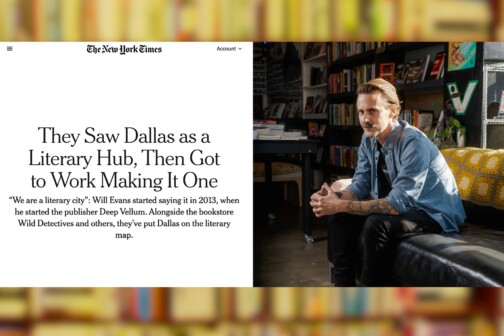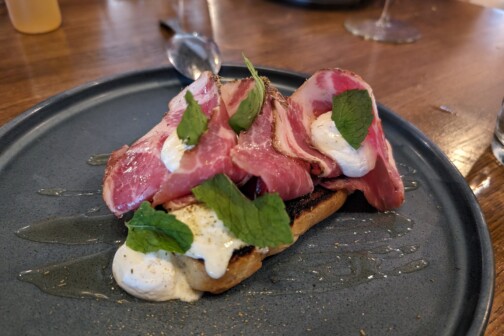TUCKED AWAY IN A CORNER OF THE Four Seasons Resort and Club, the hotels spa sits like an oasis in the midst of Las Colinas’ high-rise desert of offices, traffic, and tension. Potted plants sway, bubbling Jacuzzis spray jets of turquoise water, and New Age Muzak plays softly, as robed clients pad barefoot across cool floors.
In a room at the center of this piped-in universe, massage therapist Agnes Lopez explains to a client the basis of aromatherapy-the use of essential oils distilled from the roots, leaves, flowers, bark, or stems of plants to elicit a range of physical and emotional responses. Lopez gently presses her fingers into points on the woman’s shoulders as she explains how a massage with aromatherapy differs from Swedish or other massages.
“It’s different because other massages go deeper into the muscles,” she says. “Aromatherapy massage is very soothing and works along the nervous system.”
Aromatherapy is different all right. Ask a dozen purveyors of aromatherapy products and services, and you’ll get a dozen different versions of what it is, how it’s practiced, and what effects it can have. Most explanations begin with the premise that aromatherapy uses essential oils that can be inhaled or applied topically. Beyond that, however, definitions diverge like beads of oil dropped in water.
Lopez tells her clients it’s a therapy that can be combined with massage as a way to reduce emotional, physical, and mental stress. Diana Esber, owner of Diana Esber Beauty/Apparel in Dallas, says aromatherapy is the answer she found to combat the overpowering odor of acrylic nail polish and removers in her shop.
Teresa Farr, owner of Evolution Salon For Your Nerves in Dallas, gives clients one of two answers, depending on whether customers are “right-brained” or “left-brained.”
“If a client is left-brained, I give them the scientific definition,” Farr says. “If they’re right-brained, I say, ’Oh, you just get into a hot tub and relax,’ and talk to them in visions.”
Physicians-who are less accustomed to dealing in visions-have a more skeptical view on aromatherapy.
“I just don’t know anything about this, nor do any of my staff,” says Dr. Kenneth Z. Altshuler, chairman of the department of psychiatry at The University of Texas Southwestern Medical Center at Dallas. “It sounds a bit far out, and if none of us knows about it, one could safely say that research in this area is in the early sniffing, rather than the heavy breathing, stage.”
What researchers do know is that when aromatic molecules enter the nose, receptors create electrical impulses that travel to the olfactory nerves and then to the brain’s limbic system, where emotions and memory are processed. Scientists know that aromas can affect emotions and moods and that essential oils have been used for centuries for medicinal and aesthetic purposes. The term “aromatherapy” cropped up in the early 1900s. Clinical studies, however, have not yet proven claims that aromatherapy can relieve or cure conditions ranging from halitosis to depression.
While researchers sniff and traditional medicine turns its nose up at aromatherapy, the beauty industry has moved quickly into the heavy breathing stage. Companies wanting to give consumers everywhere their two scents worth of aromatherapy have created an essential oil spill of Valdezian proportions.
In Dallas, consumers can get their samples of aromatherapy products and services at spas like Four Seasons and The Estee Lauder Spa at Neiman Marcus NorthPark, salons like Esber’s, herb stores like Scorpio Herbs & Wholistic Alternatives, health food stores like Whole Foods Market, and beauty supply stores.
Professional aromatherapists, however, say there’s much more to aromatherapy than what meets the eye at shelf level. “The word ’aromatherapy’ is abused,” says Maria Dolores Gonzales, director of the Aromatherapy Institute of Dallas. “Unfortunately there is a lack of education about the therapy. You see products on the shelves claiming to be aromatherapy products, and you read the label and it says nothing about essential oils. That’s not aromatherapy.”
Gonzales says aromatherapy is a healing art and science practiced by professionally trained {and in Europe, certified) aromatherapists who take a holistic, individualized approach to clients. “A professional aromatherapist will do a consultation, take your whole situation-physical, emotional and mental- and choose the essential oils that suit your case.”
I va Lim Peck, a registered nurse who works as an acupuncturist at the Acupuncture & Aesthetics Center Inc. in Dallas, no longer practices aromatherapy, partly because of the mass confusion surrounding the subject.
“I don’t know if people know what aromatherapy really is anymore,” she says. “I don’t want to say that all of the products out there are not good, but on the other hand, [people] should do some research first, not just go and buy it, and not just read one book.”
Sonnia Mahar, 59, of Dallas, who suffers from headaches and from muscle tension, bought essential oil preparations from department and health food stores. With few results from the over-the-counter products, she sought the assistance of massage therapist Mary Dodd of The Health Institute in Dallas. That was 15 years ago. Mahar now swears by the aromatherapy massages she receives monthly.
“It does seem to work-how, I don’t know,” she says.
Sandy Campbell, a 51-year-old Richardson housewife, spent hundreds of dollars on aromatherapy products, including cosmetics and oils, to which she had allergic reactions. She eventually threw away the products, and now visits aromatherapist Gonzales for facials and massages.
“You’d be surprised at how many people don’t know what [aromatherapy] is,” Campbell says. “They might know about it, but they don’t understand it. I don’t really understand it either. But it works.”
Research in aromatherapy is in the early sniffing, rather than the heavy breathing, stage.
-DR. KENNETH Z. ALTSHULER
Get our weekly recap
Brings new meaning to the phrase Sunday Funday. No spam, ever.
Related Articles

Media
Will Evans Is Now Legit
The founder of Deep Vellum gets his flowers in the New York Times. But can I quibble?
By Tim Rogers

Restaurant Reviews
You Need to Try the Sunday Brunch at Petra and the Beast
Expect savory buns, super-tender fried chicken, slabs of smoked pork, and light cocktails at the acclaimed restaurant’s new Sunday brunch service.

Arts & Entertainment
DIFF Preview: How the Death of Its Subject Caused a Dallas Documentary to Shift Gears
Michael Rowley’s Racing Mister Fahrenheit, about the late Dallas businessman Bobby Haas, will premiere during the eight-day Dallas International Film Festival.
By Todd Jorgenson


